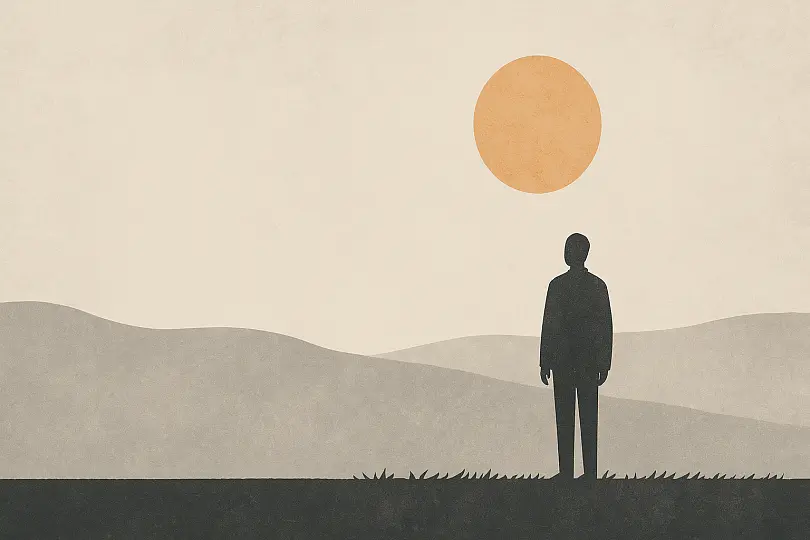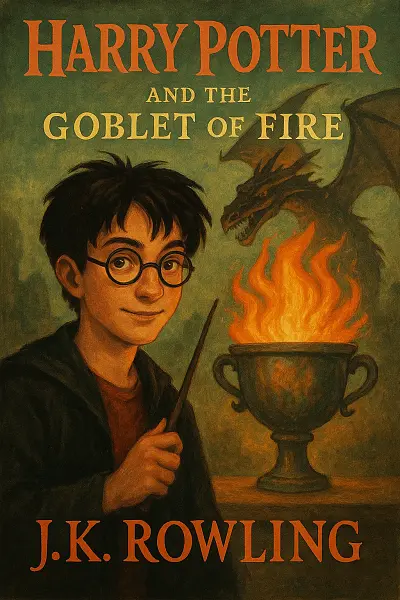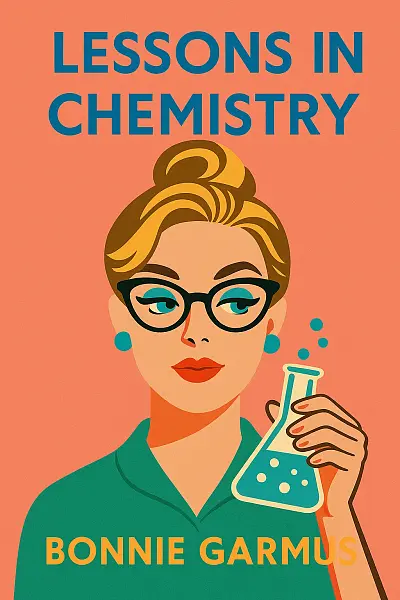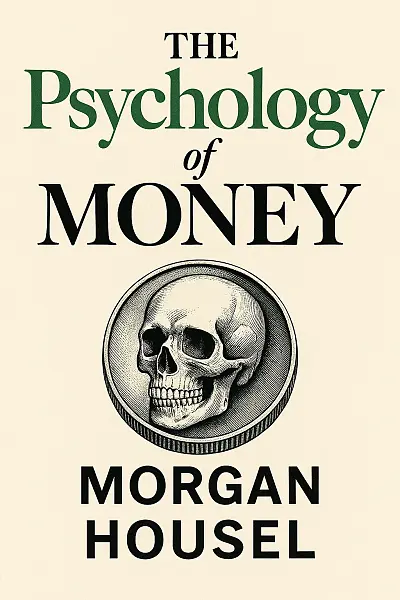
The Happiest Man on Earth
by: Eddie Jaku
Eddie Jaku is a proud German Jew, living an ordinary life in pre-war Germany, cherishing his family and community. Suddenly, everything shatters during Kristallnacht, when he’s beaten, arrested, and sent to the brutal world of concentration camps. Torn from everything he loves, Eddie must endure the unimaginable—losing family, enduring cruelty, and clinging to fading hope in Buchenwald, Auschwitz, and a harrowing death march.
With every loss, Eddie’s core belief is tested: can you truly choose happiness in the darkest places? Written in a warm, conversational style, his story pulses with heartbreak and resilience, daring us to believe that joy is possible—even here.
"Even in the darkest times, a single act of kindness can light the path to hope."
Let's Break This Down
The Author's Voice
Atmosphere
- Intimate and reflective, drawing readers close with a sense of being personally confided in
- The backdrop is harrowing yet hopeful, balancing the horrors of the Holocaust with rays of kindness and resilience
- Even in its darkest moments, there's an undercurrent of gentle optimism and gratitude that lifts the tone
Prose Style
- Straightforward and unadorned, with language that's clear, accessible, and free of pretension
- Narration feels conversational, like sitting down with a wise grandfather sharing life lessons over coffee
- Occasional poetic flourishes, but overall prioritizes clarity over literary flourish, making every story and lesson feel approachable
- Emotive—without being melodramatic—the words convey deep feeling with surprising restraint
Pacing
- Brisk and fluid, perfect for readers who appreciate momentum and don't want to get bogged down in endless detail
- Chapters are short and punchy, often ending with a compelling thought or lesson
- Moments of reflection and memory are woven throughout, offering breathing room without disrupting the book’s forward motion
- No wasted words: Eddie Jaku keeps things concise, so you’re always moving, learning, and feeling with him
Mood and Feel
- Despite grim subject matter, the mood is uplifting and inspiring—endlessly determined to find, and share, hope
- Warm, sincere, and conversational—there’s a palpable sense of kindness in every anecdote
- Readers will find themselves alternately wrenching at the heart and warmed by humanity, often within the space of a single page
Key Moments
- Escape from the concentration camp—unforgettable tension and hope against impossible odds
- Handwritten love letters that survive war and separation—romance blooming in horror’s shadow
- Vivid, heart-stopping memories of Kristallnacht—one family's world shattered overnight
- Stories of friendship saving lives in the darkest moments—Eddie’s unbreakable bond with Kurt
- A message of choosing kindness over bitterness—radical optimism forged in Auschwitz
- Simple, powerful prose that turns trauma into a life-affirming mantra: “Life can be beautiful if you make it beautiful.”
- Joyous reunion scene—one paragraph of pure emotional gold, proving survival isn’t just endurance, but hope fulfilled
Plot Summary
The Happiest Man on Earth follows the real-life journey of Eddie Jaku, a German Jew who survives the Holocaust. Starting in pre-war Leipzig, Eddie's life is shattered when Nazi persecution forces him into hiding, only to be betrayed by a childhood friend. He is sent to multiple concentration camps, including Buchenwald and Auschwitz, suffering unimaginable horrors and enduring the loss of nearly his entire family. Despite facing starvation, brutality, and death marches, Eddie’s determination to survive and his loyalty to friends like Kurt give him the strength to keep going. The narrative climaxes with his liberation and concludes as Eddie builds a new life in Australia, dedicating himself to sharing his story and embracing happiness as a conscious choice.
Character Analysis
Eddie Jaku stands at the heart of the memoir, evolving from a bright, optimistic student to a survivor marked by trauma but guided by hope and forgiveness. His unwavering friendship with Kurt highlights Eddie’s profound empathy and his reliance on relationships for strength during the darkest times. Secondary characters appear mostly through Eddie’s reflection—his parents, fellow prisoners, and betrayer—but serve as catalysts for his transformation. Over the course of the book, Eddie’s motivation shifts from mere survival to spreading a message of kindness; resilience becomes his legacy, showing readers the ways suffering can fuel compassion.
Major Themes
Major themes include the power of hope, the importance of friendship, and the conscious choice to pursue happiness in adversity. Eddie’s commitment to optimism—“I do not hate anyone”—emerges as the memoir’s guiding principle, even after profound loss. Acts of kindness, even small ones, are portrayed as life-saving, demonstrated when Eddie and Kurt repeatedly help each other survive. The book also explores the impact of trauma, the endurance of human dignity, and the dangers of hatred, reminding readers of both the depths to which humanity can fall and its capacity for redemption.
Literary Techniques & Style
Eddie Jaku’s writing is direct and conversational, making heavy events accessible for younger readers. He uses short chapters, clear language, and a chronological narrative that grounds readers in his personal experiences, often breaking the fourth wall to offer pearls of wisdom or direct encouragement. There’s rich symbolism in Eddie’s description of bread, family photos, and the blue-and-white prisoner uniform, each representing hope, memory, and loss. Repetition (“Life can be beautiful if you make it beautiful”) serves as a thematic anchor throughout the memoir.
Historical/Cultural Context
Set against the backdrop of Nazi-controlled Europe during World War II, The Happiest Man on Earth documents both historical atrocities and the resilience of Jewish communities. The memoir draws deeply from real events—such as Kristallnacht, concentration camps, and post-war migration—providing an invaluable primary account of Holocaust survival. Eddie’s later life in Australia reflects the wider experience of refugees rebuilding after devastation, adding layers of cultural and social recovery to the story.
Critical Significance & Impact
Regarded as an essential Holocaust memoir, The Happiest Man on Earth has been celebrated for its voice of hope and practical wisdom, speaking directly to both young and adult readers. Its unique blend of painful history and uplifting perspective distinguishes it among survivor testimonies, making it widely recommended in educational curriculums. The memoir’s lasting impact lies in Eddie’s call to cherish every day, fostering empathy and resilience long after the final page.

Surviving hate, choosing hope—a Holocaust memoir celebrating life’s joys
What Readers Are Saying
Right for You If
Who’s going to totally love The Happiest Man on Earth?
-
If you’re someone who adores real-life stories and finds inspiration in memoirs, this is right up your alley. Eddie Jaku’s tale is equal parts heart-wrenching and uplifting, making it absolutely perfect for anyone who loves reading about people who’ve overcome impossible odds. Seriously, if true stories give you chills—the good kind—you’ll be glued to this.
-
Are you into history, especially World War II and Holocaust survivor accounts? This book serves up vivid, honest memories, but it’s not just another WWII story. There’s a focus on hope and finding happiness even after enduring unimaginable horrors, so if you appreciate stories of resilience and kindness, this is a solid pick.
-
If you’re drawn to big life lessons—like gratitude, forgiveness, and what it means to really live well—Eddie’s voice is gentle but honest, basically like getting advice from the world’s wisest grandparent.
But here’s who might want to skip this one:
-
If you only reach for fast-paced thrillers or need loads of plot twists, this honestly won’t scratch that itch. It’s reflective, straightforward, and more about feelings and perspective than action or suspense.
-
Hate memoirs or deeply emotional topics? This is super personal and pretty raw at times, so if you tend to avoid books with heavier themes or can’t handle stories about suffering and loss, you’ll probably find it tough going.
-
Not a fan of the “finding happiness” or “life advice” genre? Eddie’s take is sincere, but some might find the lessons a little repetitive or prefer something with more subtlety.
Bottom line: If you love true, heartfelt stories packed with wisdom and hope, this one’s a must-read. But if you’re looking for escapism, thrill rides, or light-hearted laughs, maybe save it for a day when you’re in the mood for something real and deeply moving.
What You're Getting Into
Looking for something deeply inspiring? The Happiest Man on Earth by Eddie Jaku invites you into the extraordinary real-life journey of a Holocaust survivor who refuses to let hate shape his destiny.
In the face of unimaginable hardship, Eddie’s unwavering hope and kindness become his guiding light, turning even the darkest moments into lessons about gratitude and resilience. This uplifting memoir pulses with warmth, wisdom, and proof that even in the cruelest circumstances, you can choose happiness and love.
Characters You'll Meet
-
Eddie Jaku: The heart and soul of the memoir, Eddie survives unimaginable horrors during the Holocaust and emerges as a beacon of resilience and kindness. His unshakeable optimism and commitment to sharing hope define the book’s message.
-
Kurt Jaku: Eddie’s beloved father, whose wisdom and unwavering support help guide Eddie through some of his darkest moments. He exemplifies the power of family and love amidst chaos.
-
Flore Jaku: Eddie’s steadfast wife, representing devotion and the healing power of human connection. Their reunion after the war is both a symbol of hope and the resilience of love.
-
Henri: Eddie’s closest friend, whose loyalty and camaraderie become crucial for survival in the concentration camps. Their friendship is a strong source of comfort and motivation for Eddie throughout his ordeal.
More Like This
If you found yourself deeply moved by Man's Search for Meaning by Viktor Frankl, Eddie Jaku’s The Happiest Man on Earth will undoubtedly strike a similar emotional chord—both memoirs highlight the resilience of the human spirit and the power to choose positivity in the face of unspeakable suffering. Likewise, fans of Night by Elie Wiesel will appreciate Jaku’s honest, heartfelt storytelling; though each memoir confronts the horrors of the Holocaust, Jaku’s narrative leans more towards hope and finding joy in even the darkest times, offering a slightly gentler but equally impactful perspective.
On the screen side, Jaku’s outlook and journey echo the tone and message of The Boy in the Striped Pajamas—especially in the way both works illuminate small acts of kindness and humanity amid brutality, and how innocence and hope can endure against all odds. The Happiest Man on Earth stands as a testament not just to surviving, but to living, making connections that will resonate with anyone inspired by these unforgettable stories.
Critic's Corner
What does it mean to insist on hope when the world has shown you its absolute worst? Eddie Jaku’s The Happiest Man on Earth dares us to contemplate if happiness is a choice, even—or especially—in the pit of collective despair. This memoir raises the essential question: Can joy survive the deepest betrayal and suffering? It’s a question with urgent resonance today, in a world still wracked by division and trauma.
Jaku’s writing is plainspoken but deeply affecting, marked by a clarity that feels both intimate and unflinching. He speaks directly to the reader, adopting the chalkboard simplicity of a survivor determined to make lessons stick. Memoir conventions often emphasize lyricism or detached recollection, but here the directness functions as a powerful bridge for empathy. Anecdotes are rendered with sharp details—the cramp of a hiding space, a kindness shared in terror—crafting a collage of memory without melodrama. Occasionally, the prose meanders into repetition, and some transitions feel abrupt, but this contributes to the authentic voice of an elder recounting hard-won wisdom at his own pace.
Core themes of resilience, forgiveness, and agency radiate through every page. Jaku resists any easy binary of optimism vs. despair; instead, he insists on the messiness of survival—the daily work of choosing light over hatred. At its heart, the memoir explores how small acts of connection and gratitude can restore meaning amidst atrocity. The moral weight of the Holocaust is always present, yet Jaku refuses to center trauma as identity. Instead, he urges readers to choose kindness, echoing contemporary calls for radical empathy. His resolve, while uplifting, also raises complex questions—can happiness be universally prescribed, or does this risk simplifying grief? The memoir’s greatest philosophical strength is its willingness to wrestle with these uncertainties, rather than offer facile answers.
Positioned among Holocaust memoirs, Jaku’s approach is notable for its gentleness and hope, standing out alongside Night or Man’s Search for Meaning for its accessibility and warmth. Where Wiesel and Frankl probe existential or theological implications, Jaku dwells on the practical: the ethics of daily action, the imperative to turn survival into testimony, and the ongoing challenge to forgive. As survivor literature for a new generation, this memoir bridges history with the living present, reaching hesitant young readers and those seeking light in dark times.
The Happiest Man on Earth is not without its imperfections—occasional narrative unevenness and reiterative moralizing may jar some readers. Still, its sincerity, simplicity, and insistence on hope sing out above all. Jaku’s testament matters now more than ever, urging us to claim beauty where we can, and to honor memory not just with remembrance, but with living differently. This is an imperfect book, but an essential one.
Community Thoughts
I still can't shake that story about Eddie fixing the machine in the camp. The tension, the tiny hope, the terror. It felt like the air froze. That moment changed everything. I read with my heart pounding, afraid to turn the page.
honestly, i was NOT READY for Eddie’s story about the watch. that one scene, him fixing the Nazi’s watch, just stuck to my brain like glue. absolute chills, could not stop thinking about it days later.
Eddie Jaku’s story smacked me right in the soul, especially the bit where he clung to hope in the darkest cell. I keep replaying his escape in my head. How can one person radiate so much light after everything? I couldn’t put this down.
I finished this book at 2 am and then just stared at the ceiling, Eddie’s line about choosing kindness over hate would not leave my head. How does anyone just keep going after all he lived through?
I swore I'd just read a page, but suddenly it's 3am and Eddie's story is keeping me wide awake, heart pounding. His hope and grit are relentless. Honestly, I’ll never look at my own daily problems the same way again.
Leave Your Review
Local Take
Why It Matters
Reading The Happiest Man on Earth in the context of the United States brings some fascinating parallels and contrasts!
-
Historical Resonance:
While the U.S. didn’t experience the Holocaust firsthand, stories of survival and resilience often connect to America’s own tough chapters—think of the Civil Rights Movement, Japanese internment camps, or waves of immigration seeking refuge and hope. Eddie Jaku’s tale of finding hope amidst darkness really speaks to America’s foundational narratives of striving for a better life against all odds. -
Cultural Values:
U.S. readers will totally vibe with the book’s emphasis on optimism, gratitude, and the power of personal agency—those are core American ideals! But there might be some discomfort: Jaku’s prioritization of community and collective healing can clash with the U.S.’s highly individualistic culture. -
Literary Echoes:
The memoir echoes local favorites like Elie Wiesel’s Night and Maya Angelou’s I Know Why the Caged Bird Sings—it’s got that raw honesty and hopeful turn that American memoirs often embrace. Yet Jaku’s gentle, dignified tone is less common in U.S. trauma narratives, offering a refreshing, even challenging, new perspective. -
Why Certain Plot Points Hit Differently:
The book’s focus on forgiveness and letting go might surprise American readers used to stories of justice or confrontation. Some plot moments—choosing kindness over vengeance, for example—feel almost radical here, sparking real reflection about how we handle hurt as a culture.
Basically, Jaku’s journey meshes beautifully with U.S. themes of resilience and reinvention while also nudging readers to reconsider how they approach trauma and community.
Food for Thought
Notable Achievement / Cultural Impact
- The Happiest Man on Earth by Eddie Jaku has enjoyed tremendous global readership and became a bestseller, inspiring countless readers with its uplifting message of hope and resilience.
- The memoir has been celebrated for making Holocaust history accessible to new generations, sparking vital conversations about humanity, gratitude, and forgiveness across cultural and age groups.
- It also received the 2021 Australian Book Industry Award for Biography Book of the Year, cementing its influence and wide-reaching impact.
Like what you see? Share it with other readers







